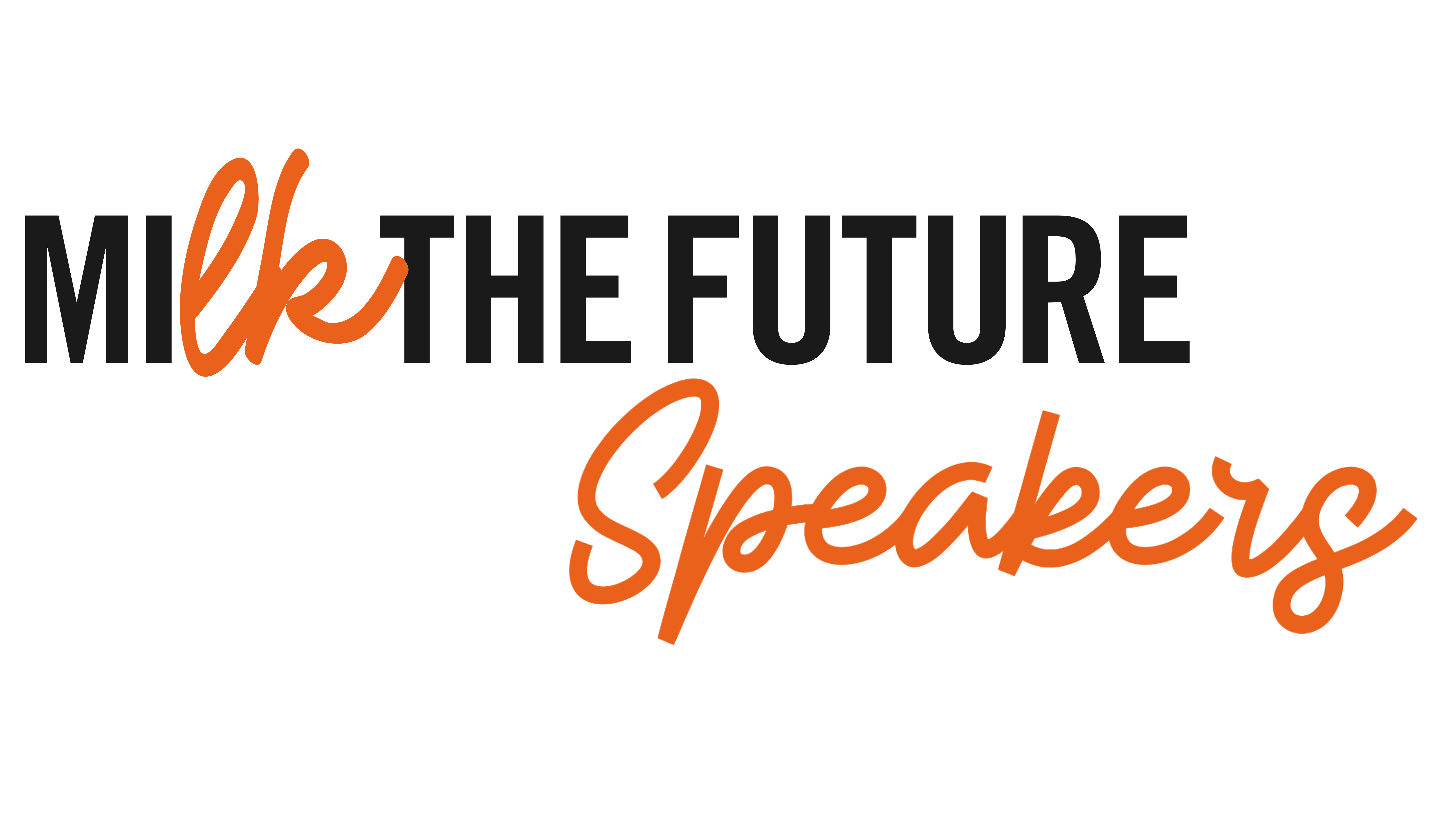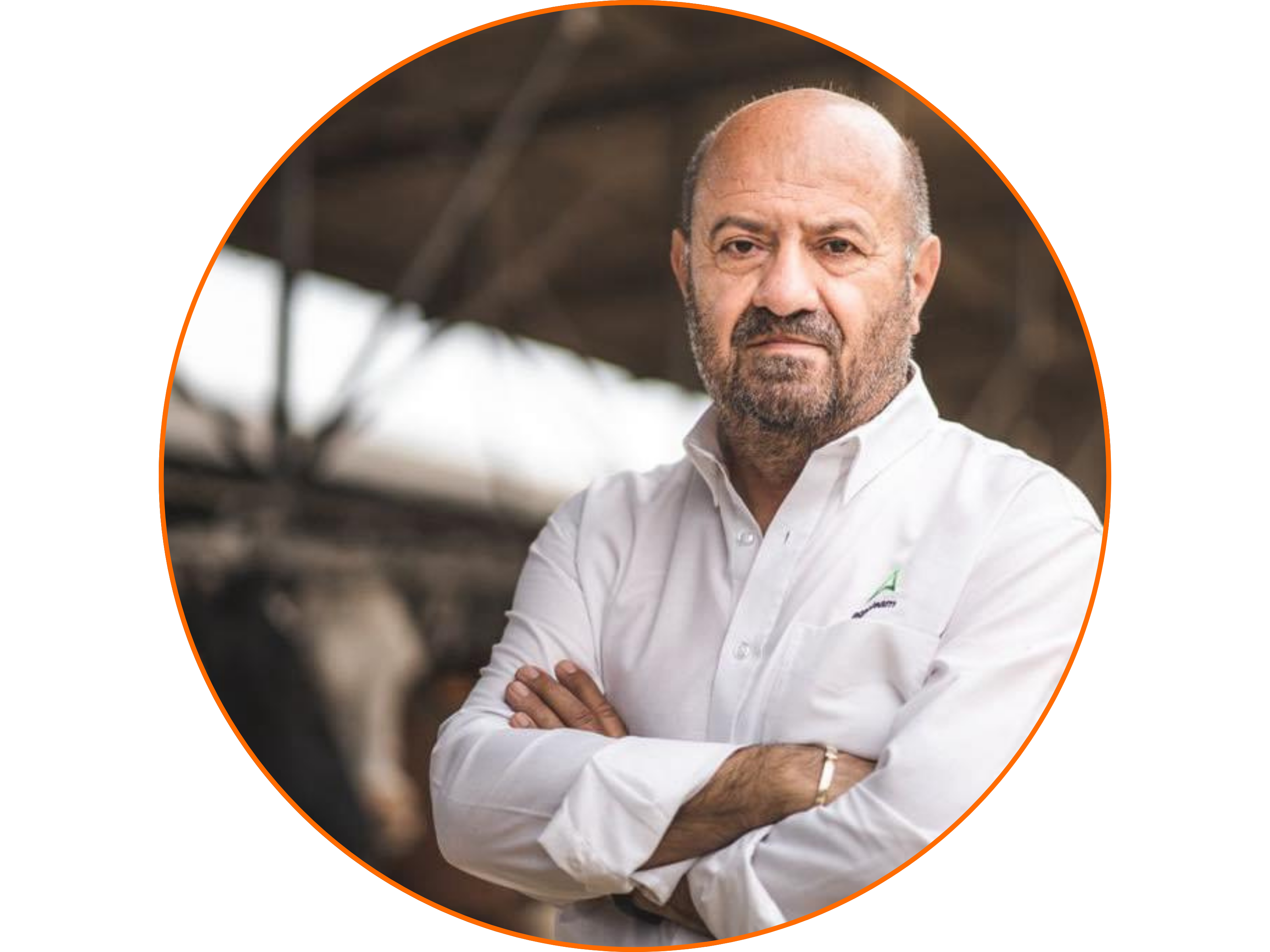
DR.
PAOLO GALLIUSSI
European Farm Business – Sales&Marketing Director ED&F MAN
PROF. GUENDALINA GRAFFIGNA
Guendalina Graffigna è Professore Ordinario di Psicologia dei Consumi e della Salute presso l’Università Cattolica del Sacro Cuore di Cremona. È Direttore sia del Centro di Ricerca EngageMinds HUB – Consumer, Food & Health Engagement Research Center sia del Master Universitario di II Livello in Patient Advocacy Management, oltre che direttore della Laurea Magistrale Internazionale in Consumer Behaviours: Psychology Applied to Food, Health and Environment. Guendalina è membro del coordinamento della Scuola di Dottorato in Psicologia, membro del direttivo del Centro di Ricerca di Ateneo TROFIC (Transdisciplinary Research In Food Issues Center) e del comitato scientifico IRCAF (Centro di Riferimento Agro Alimentare Romeo ed Enrica Invernizzi). L’attività di ricerca scientifica di Guendalina si sviluppa a partire dalla prospettiva della psicologia dei consumi applicata allo studio dei comportamenti di salute, delle condotte alimentari e all’impatto delle nuove tecnologie sul sistema sanitario e agro-alimentare. Secondo il Database Scientifico Scopus è l’autrice che ha scritto di più al mondo sul tema del Patient Engagement.
—-
Guendalina Graffigna is Full Professor of Consumer and Health Psychology at the Università Cattolica del Sacro Cuore of Cremona. She is Director of both the EngageMinds HUB – Consumer, Food & Health Engagement Research Center and the Level II University Master’s Degree in Patient Advocacy Management, as well as director of the International Master’s Degree in Consumer Behaviors: Psychology Applied to Food, Health and Environment. Guendalina is a member of the coordination of the Doctoral School in Psychology, a member of the University Research Center TROFIC’s board (Transdisciplinary Research In Food Issues Center) and of the IRCAF scientific committee (Romeo and Enrica Invernizzi Agro-Food Reference Center). Guendalina’s scientific research activity develops from the perspective of consumer psychology applied to the study of health behaviors, eating habits and the impact of new technologies on the healthcare and agri-food system. According to the Scopus Scientific Database, she is the author who has written the most in the world on the topic of Patient Engagement.
PROF. GIULIO VISENTIN
Giulio Visentin è Professore associato di Zootecnia generale e Miglioramento genetico presso il Dipartimento di Scienze Mediche Veterinarie dell’Università di Bologna, ricoprendo il ruolo, dal 2023, di Coordinatore della Laurea Magistrale Internazionale in Food Animal Metabolism and Management in the Circular Economy.
Consegue nel 2018 il titolo di Dottore di Ricerca in Scienze Animali e Produzioni Agroalimentari presso l’Università degli studi di Padova, dopo aver trascorso un periodo biennale di studio e ricerca presso Teagasc – Animal and Grassland Research and Development Center, in Irlanda. Dal 2017 al 2020 ha svolto attività di ricerca presso l’Associazione Nazionale Allevatori della razza Frisona e Jersey Italiana (ANAFIJ), dove attualmente ricopre il ruolo di Esperto di Zootecnia nelle Commissioni Tecniche Centrali dei libri genealogici della razza Frisona e Jersey Italiana. È socio ordinario sia dell’Associazione per la Scienza e le Produzioni Animali (ASPA) sia dell’European Federation of Animal Science (EAAP). Nella sua carriera ha conseguito nel 2023 il Best Poster Award dalla Sheep and Goat EAAP Commission, oltre ad aver partecipato alla pubblicazione di più di 100 prodotti della ricerca, di cui 58 su riviste peer-review. Partecipa ed è responsabile scientifico di numerosi progetti di ricerca nell’ambito del miglioramento genetico bovino e sulla sostenibilità delle produzioni animali.
—-
Giulio Visentin is an Associate Professor of Livestock Systems, Animal Breeding and Genetics at the Department of Veterinary Medical Sciences of the University of Bologna. Since 2023, he has served as Program Director of the International Master’s Degree in Food Animal Metabolism and Management in the Circular Economy.
In 2018, he earned a PhD in Animal and Food Science from the University of Padua, after spending a 2-year period of study and research at Teagasc – Animal and Grassland Research and Development Center in Ireland. From 2017 to 2020, he worked in the R&D unit at the National Breeders Association of Italian Holstein and Jersey (ANAFIJ), where he currently serves as an Animal Science Expert on the Central Technical Commissions for the Holstein and Jersey herdbooks. He is an ordinary member of both the Italian Association of Animal Science and Production (ASPA) and the European Federation of Animal Science (EAAP). In his career, he received the Best Poster Award from the Sheep and Goat EAAP Commission in 2023 and has contributed to the publication of more than 100 research outputs, 58 of which are in peer-reviewed journals. He participates in and is the scientific coordinator of numerous research projects in the field of bovine breeding and genetics and sustainability of animal production.
PROF. GREG PENNER
Il Dr. Greg Penner è Professore presso il Dipartimento di Scienze Animali e detiene una cattedra in Fisiologia nutrizionale dei ruminanti presso l’Università del Saskatchewan.
I temi di ricerca del Prof. Penner si concentrano, sull’utilizzo dei carboidrati derivanti da foraggio e da concentrati, nei bovini da carne e da latte ed inoltre lavora sulla regolazione della funzione gastrointestinale nei ruminanti.Il Prof.Penner ha pubblicato oltre 185 articoli; come riconoscimento alla sua ricerca, ed è stato insignito del Canadian Society of Animal Science Young Scientist Award (2013), dell’Early Career Research Award dall’American Society of Animal Science (2017), del College of Agriculture and Bioresources’s Dean’s New Researcher Award of Excellence (2017), del New Research Award dell’Università del Saskatchewan (2019), del Lallemand Research Excellence Award in Dairy Science nel 2019 ed ha ricevuto il Award for Technical Innovation in Enhancing Production of Safe Affordable Food nel 2021.
—-
Dr. Greg Penner is a Professor in the Department of Animal Science and holds a Chair in Ruminant Nutritional Physiology at the University of Saskatchewan.
Prof. Penner’s research focuses on the utilization of carbohydrates from forage and concentrates in beef and dairy cattle, and additionally, he works on the regulation of gastrointestinal function in ruminants.Prof. Penner has published over 185papers, as recognition for his research program, he was awarded the Canadian Society of Animal Science Young Scientist Award (2013), the Early Career Research Award from the American Society of Animal Science (2017), the College of Agriculture and Bioresources Dean’s New Researcher Award of Excellence (2017), The University of Saskatchewan New Research Award (2019), the Lallemand Research Excellence Award in Dairy Science in 2019, and the Award for Technical Innovation in Enhancing Production of Safe Affordable Food in 2021.
PROF. VITALIANO FIORILLO
Vitaliano Fiorillo (Direttore Invernizzi AGRI Lab, SDA Bocconi School of Management) presso SDA Bocconi è il Direttore dell’AGRI Lab – Romeo ed Enrica Invernizzi Agribusiness Research Initiative – e Direttore del Corso Agribusiness Management Development Program. Nel corso della sua carriera ha gestito programmi di ricerca e formazione con importanti aziende in numerosi settori economici come quello del food & beverage, oil & gas, agroalimentare, agricoltura, energia e automazione, aviazione commerciale e automotive. Attualmente le sue ricerche si concentrano su supply chain management e sostenibilità con un focus particolare sul settore dell’Agribusiness.
È autore di numerosi articoli e business case a livello internazionale, tra i quali i libri “Il futuro del biologico. Modello di sviluppo per il settore agroalimentare” (Egea, 2015), “Agribusiness. Management dell’Azienda Agricola” (Egea, 2022), “Agricoltura tra Sostenibilità e Innovazione” (Edagricole, 2023), “Agriculture as an Alternative Investment” (Springer, 2023).
—-
Vitaliano Fiorillo (Director of the Invernizzi AGRI Lab, SDA Bocconi School of Management) at SDA Bocconi is the Director of the AGRI Lab – Romeo and Enrica Invernizzi Agribusiness Research Initiative – and Director of the Agribusiness Management Development Program Course. Throughout his career, he has managed research and training programs with leading companies in different economic sectors such as food & beverage, oil & gas, agribusiness, agriculture, energy and automation, commercial aviation and automotive. Currently his research focuses on supply chain management and sustainability with a particular focus on the Agribusiness sector.
He is the author of many articles and business cases at an international level, including the books “The future of organic. Development model for the agri-food sector” (Egea, 2015), “Agribusiness. Management of the Farm” (Egea, 2022), “Agriculture between Sustainability and Innovation” (Edagricole, 2023), “Agriculture as an Alternative Investment” (Springer, 2023).
PROF. HELENE LAPIERRE
Helene Lapierre è una scienziata onoraria del Centro di Ricerca e Sviluppo di Sherbrooke, Agriculture and Agri-Food Canada.
La sua ricerca si concentra sui fattori che influenzano l’efficienza dell’utilizzo dei nutrienti per la produzione di latte attraverso una migliore conoscenza del metabolismo delle vacche da latte. Questa fondamentale conoscenza consente un apporto proteico complessivo inferiore, ma con un migliore equilibrio dei singoli aminoacidi per supportare la produzione di proteine nel latte. Un simile approccio ha l’ulteriore vantaggio di diminuire i costi razione e di diminuire l’escrezione di N nell’ambiente. Prof. Lapierre ha raggiunto un elevato riconoscimento internazionale sviluppando nuove teorie e concetti che integrano obiettivi scientifici e tecnici all’avanguardia e diffondendo questa conoscenza ai nutrizionisti di vacche da latte. Ha ottenuto numerosi riconoscimenti e premi come il Canadian Society of Animal Science (CSAS) Award in Excellence in Nutrition and Meat Science (2014), l’American Feed Industry Association Award dell’American Dairy Association (2016) e l’Award of Merit for Agronomy. (2017). È stata anche membro del comitato per la revisione della guida Nutrient Requisiti of Dairy Cattle della NASEM pubblicata nel 2021.
—-
Helene Lapierre is an honorary scientist from the Sherbrooke Research and Development Centre, Agriculture and Agri-Food Canada.
Her research focuses on factors that influence the efficiency of nutrients utilization for milk production through a better knowledge of metabolism of dairy cows. This fundamental knowledge permits a lower overall protein input, but with a better balance of individual amino acids to support milk protein output. Such an approach has the added benefit of decreasing feed costs and decreasing excretion of N into the environment. Prof. Lapierre has reached high international recognition by developing new theories and concepts that integrate leading-edge scientific and technical objectives and spreading this knowledge to dairy nutritionists. She achieved several honours and awards such as the Canadian Society of Animal Science (CSAS) Award in Excellence in Nutrition and Meat Science (2014), the American Feed Industry Association Award from the American Dairy Association (2016) and the Award of Merit for Agronomy (2017). She was also a member of the committee for the revision of the guide Nutrient Requirements of Dairy Cattle from NASEM released in 2021.
DR. MARY BETH DE ONDARZA
Mary Beth è cresciuta in un allevamento Holstein di 80 vacche da latte nel sud di New York. Ha conseguito la Laurea Triennale al Delaware Valley College e la Laurea Magistrale alla Cornell University. Nel 1994 ha conseguito il Dottorato di Ricerca presso la Michigan State University. Ha poi lavorato come nutrizionista nel settore dei mangimi nel Nordest degli Stati Uniti. Le sue responsabilità principali erano fornire consulenza nutrizionale in azienda, formare il personale di vendita e formulare e testare nuovi prodotti. Nel 2003, Mary Beth è diventata titolare di un’azienda di consulenza nutrizionale per l’industria dei mangimi per le vacche da latte, Paradox Nutrition, LLC. Attualmente conduce studi su allevamenti di vacche da latte per aziende fornitrici di mangimi. Si occupa anche di modellizzazione computerizzata e di progetti di revisione della letteratura, e continua a fornire consulenze nutrizionali in azienda.
—-
Mary Beth grew up on an 80-cow registered Holstein dairy farm in southern New York. She received her B.S. at Delaware Valley College and her M.S. at Cornell University. In 1994, she received her Ph.D. from Michigan State University. She then worked as a nutritionist in the feed industry in the Northeast. Her primary responsibilities were to provide on-farm nutritional consultation, educate sales staff, and formulate and test new products. In 2003, Mary Beth became sole proprietor of a nutritional consultation business for the dairy feed industry, Paradox Nutrition, LLC. She now conducts studies on commercial dairy farms for feed ingredient supply companies. She also does computer modeling and literature review projects, and she continues to do some on-farm nutritional consultation.
PROF. ANDREA FORMIGONI
Andrea Formigoni è Professore ordinario, titolare della cattedra di Nutrizione e Alimentazione animale del Dipartimento di Scienze Mediche Veterinarie (DIMEVET), Università degli Studi di Bologna. Referente scientifico del Consorzio del Parmigiano Reggiano e Membro del Comitato di Salvaguardia del Dipartimento di Controllo di Qualità del Parmigiano Reggiano. È responsabile di diverse ricerche di interesse nazionale (PRIN, FISR), da Enti pubblici (MIPAAF, INRAN, Spallanzani, Consorzio del Parmigiano Reggiano, CRPA, Regioni Emilia Romagna e Lazio) e da aziende private (Assolac, Granlatte, Elanco, Pfizer, AIFE, Lallemand, Nutristar, Alltech, Balchem, ED&F Man, LEM Carni, BTS, G.I.MA, Massa Mangimi); ha pubblicato oltre 330 lavori, in gran parte di natura sperimentale, su riviste nazionali ed internazionali.
—-
Andrea Formigoni is a full Professor and Head of Animal Nutrition at the Department of Veterinary Medical Sciences (DIMEVET), at University of Bologna. He has a degree in Veterinary Medicine and a PhD in Animal Reproduction Physiology from the University of Bologna.He is the scientific referent of the Parmigiano Reggiano Consortium and Member of the Safeguard Committee of the Parmigiano Reggiano Quality Control Department. He is responsible of several founded researches of national interest (PRIN, FISR), from public Institutions (, MIPAAF, INRAN, Spallanzani, Parmigiano Reggiano Consortium, CRPA, Emilia Romagna and Lazio regions) and private companies (Assolac, Granlatte, Elanco, Pfizer, AIFE, Lallemand, Nutristar, Alltech, Balchem, ED&F Man, LEM Carni, BTS, G.I.MA, Massa Mangimi); he has published over 330 papers in national and international journals.

chairman
CLEMENTE PALAZZO
Clemente Palazzo è il Chairman del convegno Milk The Future: The next level.
E’ un Tecnico Nutrizionista e Socio Fondatore nel 1997 di Agroteam SpA, (Roma) operante nell’ambito delle sementi foraggere e degli integratori per vacche da latte.
Nei primi anni 80 studia e lavora negli USA per poi assumere la direzione zootecnica dell’allevamento Torre in Pietra Albertini.
Nel 1986 inizia l’attività di consulenza come nutrizionista libero professionista soprattutto nell’Italia centrale.
La sua curiosità e la sua passione lo hanno portato a fare spesso viaggi di aggiornamento negli USA (ed anche in Israele con il prof Kroll) partecipando annualmente a convegni scientifici uniti a confronti con colleghi americani nelle stalle per portare quelle esperienze in Italia attraverso la sua azienda Agroteam.
E’ stato uno dei primi nel nostro paese (anni 90) ad interessarsi e ad usare il sistema dinamico (CNCPS) che conosce fin dalle prime divulgazioni.
—-
Clemente Palazzo is the Chairman of the conference Milk The Future: The next level.
He is a Nutritionist and Founding Partner in 1997 of Agroteam SpA, (Rome) operating in the field of forage seeds and supplements for dairy cows.
In the early 80’s he studied and worked in the USA, then took over the zootechnical management of the Torre in Pietra Albertini farm.
In 1986 he started consulting as a free agent nutritionist, mainly in central Italy.
His curiosity and passion have led him to make frequent trips to the USA (and also to Israel with prof Kroll) participating annually in scientific conferences joined to comparisons with American colleagues in the farms to bring those experiences in Italy through his company Agroteam.
He was one of the first in our country (90’s) to take an interest and use the dynamic system (CNCPS), which he has known since the first publications.
